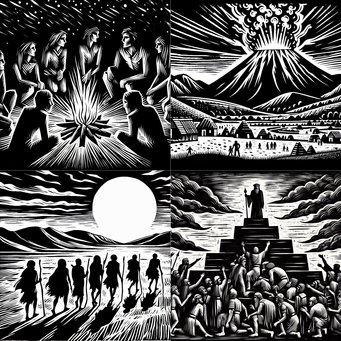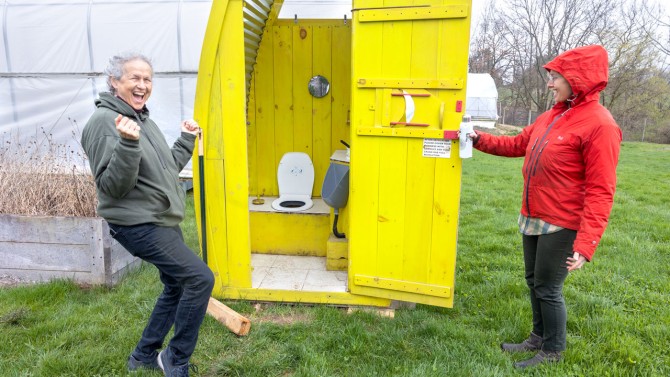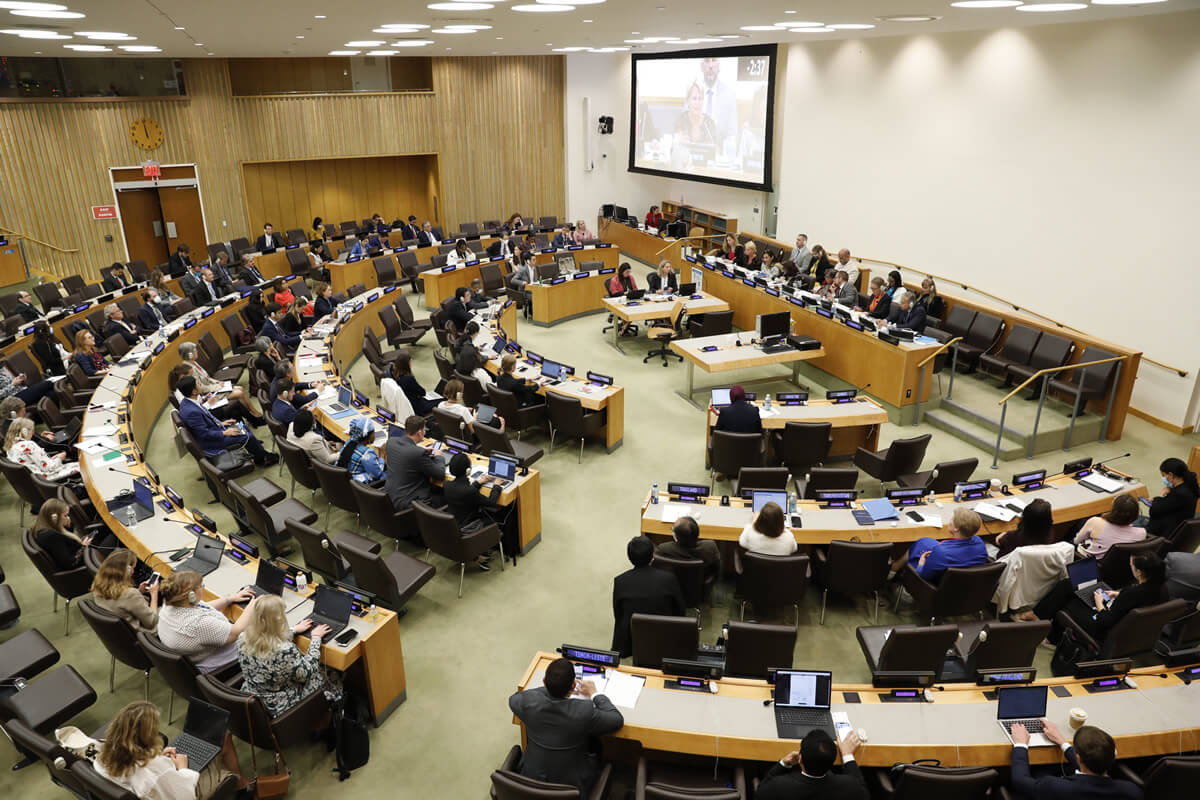The 21st Vincent Lingiari Memorial Lecture – 26 August 2022
Thomas Mayor
Walking on our land our way – The momentum towards a constitutional right to be heard
Acknowledgements
Firstly, I acknowledge and pay my respects to Gurindji people, your Country and Elders, and I thank the Gurindji Board and your community for trusting me to deliver this lecture in honour of a very special man, Vincent Lingiari.
I also acknowledge the other First Nations who were part of the walk off – the Mudburra, Warlpiri, Bilinarra and Ngarinyan people.
This afternoon, I will speak to the greatness of Vincent Lingiari’s legacy. I will speak about what we can learn from what happened after the handful of sand, and how we can complete the Gurindji dream – to make Australia a place where First Nations people can live on our land our way. I will speak to why we must enshrine a Voice to Parliament, so that Aboriginal and Torres Strait Islander peoples can be heard as a chorus, so we can no longer be ignored. So our nation can come together – stronger than before – from whatever backgrounds we come from – living together as mates.
I acknowledge:
The Envoy for Reconciliation and the implementation of the Uluru Statement from the Heart, Senator Patrick Dodson
Federal Member for Lingiari, Marion Scrymgour
Senator Jacinta Price
Her Honour Vicki O’Haloran
NT Attorney General, Chancey Paech
And Minister Kate Worden
I acknowledge the Aboriginal and Torres Strait Islander youth convoy, who have travelled here from all over the country, building momentum to help us win the imminent Voice referendum.
I want to make a special acknowledgement to Aunty Josie Crawshaw, and the lifetime of work you’ve done for our people.
In advance, I thank Charles Darwin University – in particular Professor Scott Bowman, Professor Rueben Bolt and Aunty Bilawara Lee. I thank the CDU’s Gurindji advisors, Sue Stanton and Eddie Kitching. And I express my appreciation to the hard working CDU team and festival workers who have pulled this festival and special lecture together.
Before I begin, I want to acknowledge other Aboriginal and Torres Strait Islander people who are listening to what I have to say. I acknowledge the Aboriginal and Torres Strait Islander families and communities across this entire continent who are still fighting for justice. Those of us with missing children; those of us who are suffering from a loved one dying in custody with many questions about how they have died unanswered, or, where the answers to those questions are so obvious, yet there has been no justice.
I acknowledge those of us who are fighting to protect country – sacred Country that is being blown up, dug up, bulldozed, dried up, overfished and poisoned.
To all our mob in the many different ways we are fighting to overcome the challenges that are uniquely ours in this country, I acknowledge you have never given up. The speech to come is in solidarity with your struggle. I hope it shines a light on your path. You do not walk alone.
And lastly, before I begin, I acknowledge I acknowledge my own mob. I am proudly Kaurareg Aboriginal, Kalkalgal and Erubamle Torres Strait Islander. And I am union.
I am proud to be a member and official of the Maritime Union of Australia. The MUA didn’t hesitate to support the Gurindji Wave Hill Walk-off, 56 years ago.
I am proud to say that the MUA will continue to walk with my people until we gain the rights and respect that we deserve.
And finally, dearest to my heart, I acknowledge my wife, Melanie, and my children, Ruby, William, Shayla, Tiah and Celestino for their unwavering love and support.
Oration begins
It was August 2011 when I first came to Gurindji country, for the 45th anniversary of the Wave Hill Walk-Off. I remember sitting in the shade of a bough shed among a throng of politicians, journalists and Indigenous leaders from throughout the country, all buzzing around legendary Gurindji Elders.
I sat with the Gurindji men who were smartly dressed in long-sleeved button-up shirts, dusty jeans and broad-brimmed cowboy hats; old Jimmy Wavehill was among them, wearing his much-loved charismatic smile.
I strained to hear every word spoken between the Elders amid that buzz. I recall how their eyes glowed as they reminisced about Vincent Lingiari, who guided more than 200 Aboriginal stock workers, domestics and their families away from slavery.
As I listened, I imagined Lingiari’s courage. I want us all to imagine his courage and be inspired by it:
It was early in the morning when Vincent Lingiari began to walk. He walked west and his people followed with the sun at their backs and the shadows of their ancestors before them.
Under the bough shed that day, on the 45th anniversary, the old men explained to me how they dared not walk along the road, for fear of a confrontation with angry white men.
They followed the fence line for a while and then cut across country.
They were defenceless on that walk, and burdened. On their backs were their meagre belongings; on their hips their small children; and they carried the heaviest burden of all in their minds – the nightmares of cruelties at the hands of the invaders and the massacres experienced in their lifetimes.
Vincent Lingiari was a child when the most recent recorded massacre happened in 1924.
I imagine he would have wondered as he defiantly walked that morning, ‘Will white men, the kartiya, come galloping over the horizon with their guns ablaze again? Will the angry kartiya send us to join our murdered families, our image never again cast on our land by a rising sun?’
But still Vincent Lingiari walked.
When a policeman, with haste, rode his horse to confront and intimidate Lingiari, to turn his people back to Vestey’s keeping, Lingiari refused. He led his people to a place of their choosing; they turned and faced their formidable foes – both the Commonwealth who had stolen their land, and their former slave-masters who were exploiting it.
Vincent Lingiari and his people could not be moved, despite all the tactics of division, for nine long years, until that iconic moment in 1975, when Prime Minister Gough Whitlam, gave back a handful of sand.
Let us remember Vincent Lingiari, a man who dared pursue a dream to live on Gurindji land, the Gurindji way. A visionary man who dared to pursue a dream of a new relationship with broader Australia – one where First Nations people and kartiya could live as mates. Let us learn from his legacy as we continue our walk toward our rightful place in our country.
Let us have courage, as Lingiari did.
The entire nation should learn about the story of Vincent Lingiari and the Wave Hill Walk-Off. And our understanding of this story should go beyond that iconic moment with Gough Whitlam. If people learn about what happened after the handful of sand, they would understand the practical reason a Voice to Parliament is so important.
After 1975, with some land back, the Walk-Off mob established the Murramulla Gurindji Company. They loved working cattle, at their pace, not as slaves.
The Gurindji were content with raising cattle, enjoying their beef, and practicing their culture again. They wanted to build their community, a safe place for their children so they could keep their language and traditions alive, passing it on to the following generations as they had done for tens of thousands of years.
But at every turn, they were hobbled by paternalism. They faced strictly imposed laws and policies decided far away from their influence in Darwin and in Canberra.
Government-appointed advisors were forced on the Gurindji Company. Of course, some of the advisors skills and expertise was important. But their interest often became about themselves.
The advisors, in line with government policies, rigidly pushed the European priority for land use: to exploit the land to extract maximum commercial profit. These kartiya priorities were at stark odds with the Gurindji dream.
The Northern Territory Government, under the Country Liberal Party, was especially bad in those times. They passionately opposed land rights and did everything possible to hinder the Federal Governments plans.
As Vincent Lingiari and the Elders sought to achieve their dream of freedom and equality, there were ‘rights for whites’ rallies in the nearby town of Katherine.
Sir John Kerr, the Governor General who sacked Prime Minister Gough Whitlam, also played his part to destroy Vincent Lingiari’s dream. It is noteworthy that Kerr was the cattlemen’s representative in the arbitration commission against equal wages before the walk off.
Later, acting against the Gurindji Elders’ wishes, Sir John Kerr declared Kalkaringi a public town. This declaration opened Kalkaringi to white opportunists.
History shows that many of the newcomers thieved and manipulated for personal gain while Gurindji were blamed for the problems that were caused. Kerr’s decision also opened the community up to an influx of alcohol and its corrupting effects.
The Gurindji Cattle Company folded in the late 1980s. It was a heartbreaking time for the surviving walk-off mob, made all the more devastating when, on 21 January 1988, Vincent Lingiari passed away.
This is the sad, mostly unknown story of what happened after the handful of sand. As Gurindji Elders lost authority in their own community, as their Voice was diminished and ignored, many of their children, who they had worked so hard to provide a better future for, began to lose their way.
The Gurindji story is synonymous with other Aboriginal and Torres Strait Islander struggles throughout this country. There are many times our people have demonstrated courage and tenacity in powerful moments of unity.
In 1936 there was the Maritime strike in the Torres Strait and the Day of Mourning in Sydney. In 1939, the Cummeragunja walk-off. In 1946 the Pilbara Strike, In 1957 the Palm Island strike, and in 1965 the Newcastle Waters Walk-Off.
There is many more I could speak of.
Our people have made many statements and petitions as well. The petition to the king in the 1930’s, the Yirrkala Bark Petitions in the sixties, the Larrakia petition to the Queen in the 70’s, and the Barunga Statement in the 80’s, just to name a few. And in this decade, the Uluru Statement from the Heart.
All of these actions were taken by our Elders in the hope that we could achieve fairness, equality and, generously, a unified future with broader Australia.
All of these statements and petitions called for political representation – we have learnt over and over again that the key to our hopes is to establish a Voice that is heard.
But there’s another pattern throughout the history of our struggle that must be acknowledged.
Every time Indigenous people have built a political Voice on our own – representation that has been capable of speaking up collectively and unapologetically – that has been capable of holding politicians to account for cruelty, negligence and ignorance – that has had the capacity to inform the parliament on how they can get things right – we have been silenced.
From the Australian Aboriginal Progressive Association in the 1920’s, which was silenced through brutal intimidation by authorities who had complete control over our lives; through the Aboriginal Advancement League, the NAC, the NACC, FCAATSI, to the Aboriginal and Torres Strait Islander Commission which was established in 1988. All of them split up, ignored, defunded and destroyed.
ATSIC was not corrupt, as some naysayers continue to say today. ATSIC was doing excellent work. And yes, it had its problems – but all human organisations will. Instead of supporting the Indigenous leaders of the time as we improved ATSIC’s composition and processes, the Howard Coalition Government, with the support of Latham’s Labor Opposition, chose to purposely and tactically demonise and vilify that Voice until they had softened the Australian public up with enough lies to repeal it in 2005.
I want you to think about what has happened since then.
In 2007, we saw the Racial Discrimination Act in the Northern Territory suspended so that the Government could turn the Australian army in on its own most vulnerable citizens – an intervention in to Aboriginal communities in the Northern Territory based on lies. Of course, the intervention failed to improve the lives of Indigenous people. In fact, it made things worse.
There should have been a political cost for such a heinous act. But as always, the cost was ours alone.
The cost was families ripped apart. The cost was Black men stigmatised nationally. The cost was more children displaced. And the impacts from the Intervention are still felt all these years later and we had no voice to parliament to set the record straight.
We have also seen hundreds of millions of dollars cut from frontline community services, with the billions spent in Indigenous affairs siphoned off before reaching our people who need the money the most.
And as we wonder why closing the gap reports continue to tell a story of paternalistic policy, misdirected funds and missed targets, the gap widens, communities languish and the wider public ask where all this money is going.
Yet Tony Abbott told the Australian people that our poverty is a lifestyle choice.
Governments don’t rise or fall because of their track record in Indigenous affairs. There is no accountability for how they have failed us.
A Voice to Parliament will amplify our solutions instead of the Parliament amplifying our problems for political gain and to create cover for their failures.
There are some who say Indigenous people already have a Voice because there is a record number of Indigenous people elected to Parliament; these same people are saying that a constitutionally enshrined Voice is only for ‘elite Blacks’ – merely woke symbolism that will do nothing to address the issues in our remote communities.
I say to them, you are dead wrong.
Aboriginal and Torres Strait Islander people need a Voice that is protected from being silenced by hostile governments. We need a Voice where our representatives are not chosen in preselection processes run by the Greens, Labor, or the Coalition. We don’t want self-appointed Voices either, who are backed by right wing think tanks.
We want a Voice with representatives who are chosen by Aboriginal and Torres Strait Islander people. We want to be responsible for holding our representatives to account, according to our culture and values and the priorities that we determine. And we want the rule book – the constitution – to guarantee that what we say will be listened to, transparently, and with due respect.
In a representative democracy, being heard by all parliamentarians, and all Australians, in the centre of decision making, is the most practical thing we can do.
And there is nothing more lasting and powerful than establishing a representative body by a vote of the Australian people at a referendum. There can be no greater mandate.
When the Australian people say YES to an Aboriginal and Torres Strait Islander Voice, they are saying to Parliaments for all time to come that what we say about our community and country must be listened to with the respect that we deserve.
For far too long, naysayers have told us to lower our sights and dampen our aspirations for change because of some lazy speculation that the Australian people won’t support real change for our mob. I believe this is a miserable caricature of who the Australian people are. We cannot allow this low bar politics to hold us back. We must believe we can be better.
Vincent Lingiari did not settle for rations. When offered a few bob to break the strike, he didn’t lose sight of his dream of equality and land rights. Why should we accept less than a simple constitutional right to be heard today?
Our aim is for fairness. And that is not a bar too high.
If the catch cry of this nation is advance Australia fair, then we must advance our constitution so my people are heard.
If we are a nation that is for a ‘fair go’, then we must act it.
We cannot aim low.
We must not dampen our aspirations for change.
We must work hard, as Lingiari did.
We must have courage, as Lingiari did.
We must unite people across cities and towns, across religions and ethnicities, across the length and breadth of this great country, as Lingiari did.
Prime Minister Albanese has suggested the question in 2023 may be this:
Do you support an alteration to the constitution that establishes an Aboriginal and Torres Strait Islander Voice?
It has been my experience that the answer will be a loud and resonant Yes.
Through the Referendum Council process of thirteen regional dialogues that began in late 2016 and ended in May 2017, to that question of a constitutionally enshrined Voice, firstly, Aboriginal and Torres Strait Islander people said a loud and resonant YES.
From the passionate debate and the hard work to reach a consensus at the national constitutional convention at Uluru on 26 May 2017; to a constitutionally enshrined Voice, the 250 delegates from all parts of the southern sky, again, said a loud and resonant YES.
When I took the sacred Uluru Statement canvas throughout the country, rolled up in a patched together postal tube, starting right here, in the golden grass of Gurindji Country, on to the red dirt in the Pilbara, to the sandy grounds of Lombadina, and to a community BBQ in Marickville in a future Prime Ministers electorate; from remote communities to the big cities; in large conferences and small town halls; all across the country in the first years of the campaign – the Australian people said a loud and resonant YES.
Thanks to young advocates like Teela Reid, who took on a dismissive Prime Minister on national TV; hard working mob like Dean Parkin, who has tirelessly lobbied in Canberra; Elders like Aunty Pat Anderson, who’s honesty and integrity has been a guiding light to our supporters; the people who are here today, Kenny Bedford, Samara Jose, Dee Edwards, Stacey Ketchell, Jade Ritchie, Daniel Rosendale, and on the list goes – grass roots advocates who have never given up hope – and the unions and corporates, progressives and conservatives, and the courageous Gurindji community themselves – a grassroots movement of people from across the political spectrum are building the momentum for change once again.
The answer to the question of if Aboriginal and Torres Strait Islander people should have the dignity and respect of a Voice WILL BE a loud and resonant yes!
I say this to all Australian people as I approach the conclusion to this memorial lecture.
Let us learn from that great man Vincent Lingiari. Let us learn from the strength of his legacy: this generous, caring, loving people who have followed in his footsteps to build this beautiful community.
And I say to fellow First Nations people, let’s back ourselves in to win this referendum – let’s take a hold of this once in generations opportunity as our Elders did in 1967. Let us step up in our communities, our town and cities, wherever we are. Let’s have courage like Lingiari did to take our kartiya mates by the hand as we lead them back through the constitutional door together.
This is Rosie Smiler, a very good friend of mine. She is a strong Gurindji woman and a leader like her Grandfather, Vincent Lingiari.
Several years ago, Rosie told me she wanted to write a childrens book because she wanted the karu, which is the Gurindji word for children, to learn about her grandfather’s story.
Last year, we published this book, Freedom Day: The story of Vincent Lingiari and the Wave Hill Walk-Off. Now children from all parts of the country have read the book and are learning from it.
Rosie and I want to finish this lecture by honouring the strength of Aboriginal and Torres Strait Islander women, who have ultimately led our march back to our rightful place on our Country. And we want to honour her grandfather, by asking a karu from this community to read his story.
This is Ailani. She is a Gurindji girl, the great granddaughter of a very important woman, Nancy Warungali, who bravely walked with Vincent Lingiari 56 years ago.
Listen now to Ailani, as she finishes this first lecture on her Country.
As you listen to her, I want you to think about what a wonderful thing it would be for our generation – the adults in our karu’s lives – to provide a constitutional guarantee that when Ailani grows up, she will be proud to be Australian, because part of what it means to be Australian, is the gift that is her Voice.
I say, this we can do, if we have courage, like Lingiari did.
Rosie reads:
“I am proud of my grandfather’s legacy. The Gurindji leaders of today are continuing that legacy. We are building a strong, vibrant community. But now let me tell you about some unfinished business – we have our land, but we still need to have a Voice.
Ailani reads:
We won some land back but, sadly, despite everything we tried, we weren’t able to live on our land how we wanted to after all. The politicians wanted Gurindji to live the kartiya way. But Gurindji just wanted to look after our families, raise our own cattle and practise our culture on our land without being told what to do.
By the late 1980s, years of bad advice and kartiya taking advantage of us had taken its toll. Some politicians were helpful, but most never listened to Gurindji leaders. They made decisions in parliament that harmed us. Many of our young people started to lose hope. In 1988, my grandfather died.
That’s why, in 2017, we wrote the Uluru Statement from the Heart. We want to have a Gurindji voice, coming together with all other First Nations – a powerful voice – so kartiya can hear us.
Our voice can tell Australia the truth. Our voice can help make treaties. Our voice should be in the rule book – the constitution – as it should have been long ago.
The Uluru Statement is an invitation to all Australian people to walk with us, like you, our mates, walked with us Gurindji before.
A mixture of courage, determination and helpful mates, like you, is how my grandfather got a handful of sand.
Now, will you walk with us again?








